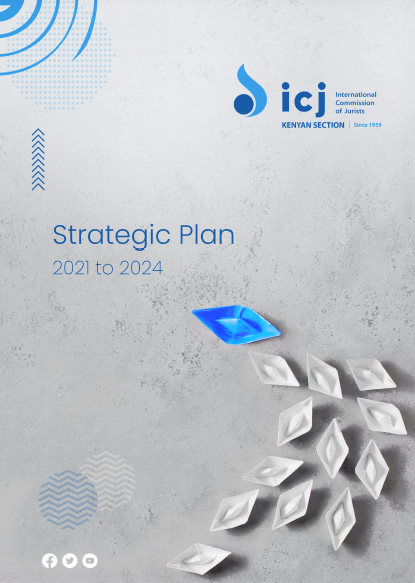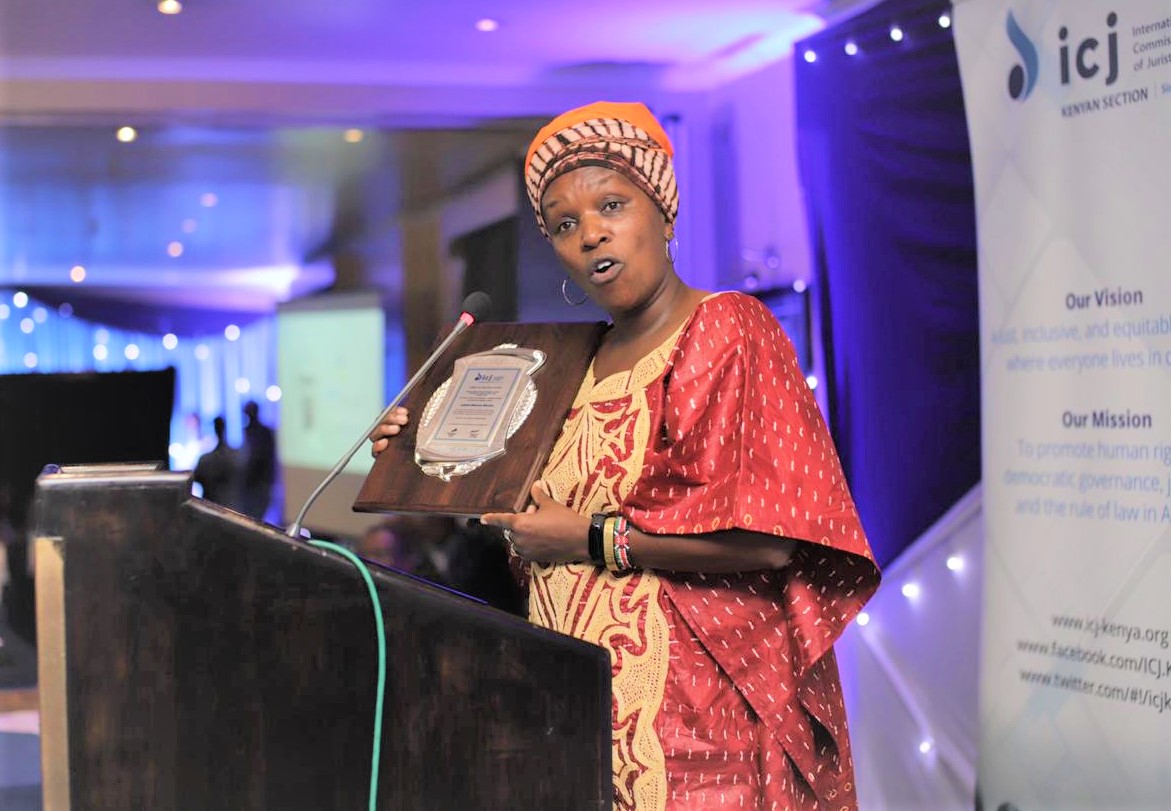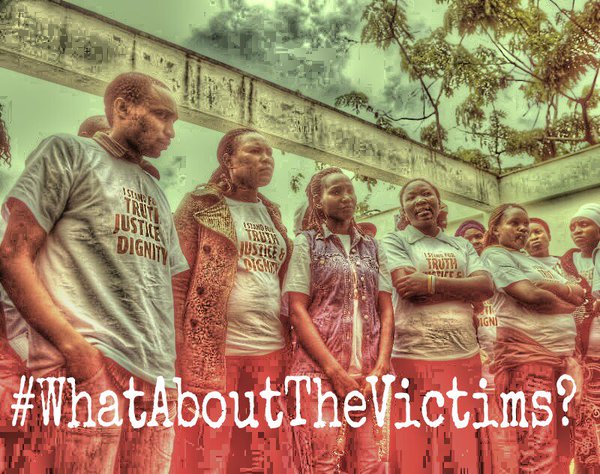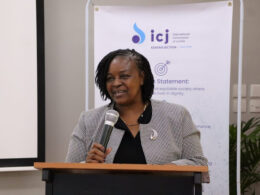ICJ Kenya recognises the need for periodic strategic (re)positioning to enable better align with shifting operational contexts. Drawing on the achievements and lessons of the immediate past Strategic Plan, and acknowledging the current and anticipated operational contexts, this Strategic Plan (2021- 2024) is an attempt to effectively position ICJ Kenya in the constantly evolving Rule of Law, Human Rights and Justice contexts.
This Strategic Plan document is the outcome of a co-creation process involving rigorous analysis and reflections by ICJ Kenya staff, Council Members and stakeholders from civil society, private and public sectors. A multi-faceted strategic analysis entailing both internal and exterior contexts was undertaken, the outcomes of which have significantly shaped the defined focus, strategies and interventions.
The plan has been aligned with applicable global and regional protocols and development priorities. The plan is seen as a broad framework document that sets broad parameters to our programs and operations over the plan period. Being a living document, the Strategic Plan, will be reviewed midstream to test for continued relevance and review progress against set targets.
The plan is founded on four strategic result areas around which IC Kenya work will be focused over the four-year plan period: Rule of Law, Human Rights, Economic Justice, and Institutional Wellbeing. Five overarching strategies have been adopted and will apply across all result areas. These are Public Interest Litigation (PIL), Capacity development/ system strengthening, Knowledge management, Advocacy (influencing) and Partnerships development.
This strategy is organised into five main sections. The first section provides background information on the ICJ Kenya, while section two summarises the results of the context analysis. The third section on its part presents the basis of the strategic choices and the theory of change, while the fourth contains the broad objectives, expected outcomes and interventions. Supportive operational matrices are contained in section five of the document.
The Strategic Plan comes at a time when there are increasing cases of governance crisis, human rights violations, and social-economic injustices in Africa. Recognizing that no single actor can, on its own, effectively, and sustainably address the structural causes of these concerns, the plan pursues an integrated, systems thinking approach.
The ICJ Kenya leadership is very enthusiastic about this Strategic Plan, particularly the opportunities it presents for creating positive social change. We call upon all our partners to join hands with us as we boldly venture into implementing the plan and the strategies contained herein.
We are aware that the successful implementation of this Strategic Plan requires commitment and dedication from our staff, membership, council, and support from our development partners and stakeholders. We invite you to join us in implementing this plan as we continually build public support for future change and create a society where human rights and justice thrives.











